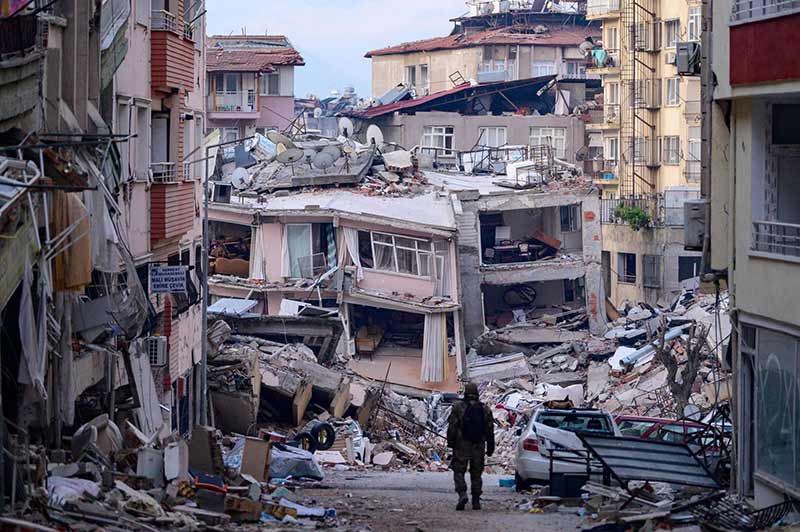In the March 6 podcast from PRI’s The World, we learn that Turkey’s autocratic ruler, Recep Tayyip Erdoğan, pushed through a law that criminalizes reporting on the damages from the massive earthquake that recently shook southern Turkey and northern Syria.
Under Turkey’s new “disinformation law,” a journalist who took videos of people directly affected by the earthquake was arrested and threatened with up to three years in prison for “intentionally sharing false information with the public.” But he got his information directly from the public itself, from the people who work in the earthquake zone and who had lived through it all.
The day after the earthquakes, Turkish president Erdogan talked about recovery efforts in a televised address and he vowed to track down people creating what he called “social chaos.”
The official line pushed by Erdogan is that the earthquake response has been under control from the start, but independent journalists and social media users told a much different story, with aid from government being painfully slow.
Turkish authorities have detained journalists, a renowned geology professor and at least 25 social media users for allegedly spreading disinformation or provocative posts. But mainly, it’s the government’s way of criminalizing criticism. In many countries like Turkey, journalists face harassment, death threats, and prison time, just for speaking truth to power.
At this point, the United States still allows journalists and others to criticize the government, largely because the First Amendment protects that right. In too many other places, the clampdown on speaking truth to power is perfectly legal, but wrong.
